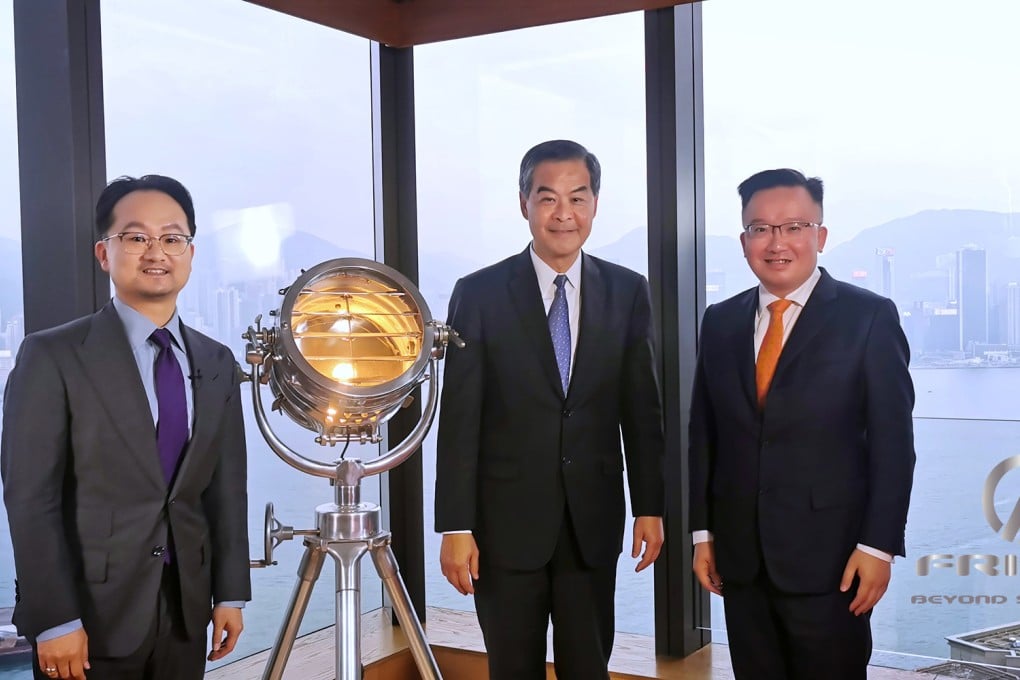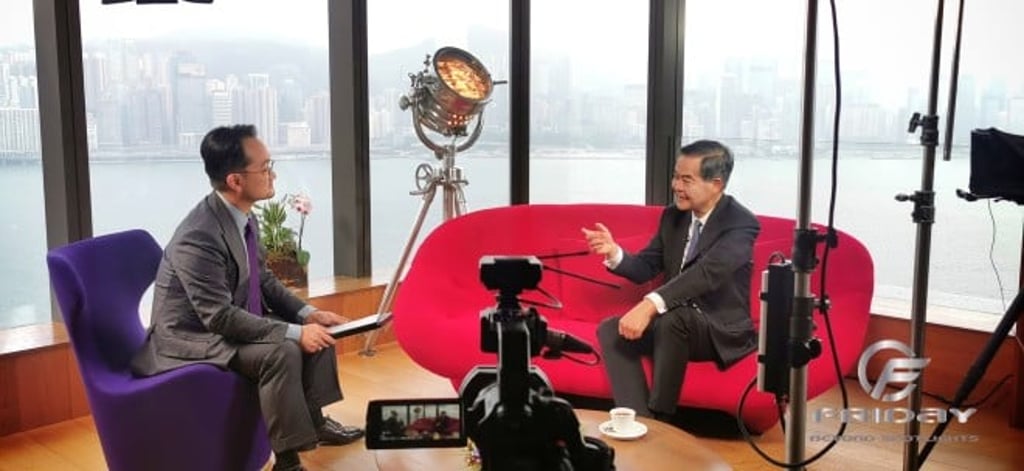Greater Bay Area offers unique career opportunities for Hong Kong’s young people, says CY Leung on a new talk show

[Sponsored Article]
In a new television talk show, former chief executive of Hong Kong CY Leung discusses the city’s uniqueness as an international trading hub and as a “super connector” in the Greater Bay Area (GBA) with Mainland China as the hinterland. Leung encourages young people to grasp unique opportunities in Hong Kong and GBA for career development. He also shares some interesting stories of his life as a student in Bristol, England, some 40 years ago, and encourages teenagers to study overseas to experience the life and learn other cultures in a foreign country.
Premiered on February 11, weekly programme Friday Beyond Spotlights is an informative English language television talk show targeted at the global business audience. Broadcasted on the Hong Kong International Business Channel, the weekly programme invites remarkable high achievers and thought leaders to share their insights on current affairs, business, innovation and culture, and looks into their lives behind the scenes. The light-hearted programme is hosted by Patrick Tsang On-yip, Vice-Chairman and Executive Director of i-Cable Communications and CEO and Director of Chow Tai Fook Enterprises; and Nick Chan Hiu-fung, a lawyer and elected lawmaker serving on the National People’s Congress.

On business opportunities in the GBA, Leung said Hong Kong can serve the role of a “super connector” between the GBA and the other parts of the world, not only in trade and investment in the financial services, but also in promoting cultural interchange. “Hong Kong is a very useful base for foreign enterprises to break into the GBA market, and it’s very easy to establish and run a business in Hong Kong. The typical thing I say to prospective foreign companies to be based in Hong Kong is that you only need to send from your home country a young manager. You hire an assistant, a driver and a secretary in Hong Kong, and the four of you could cover the entire GBA cluster on a daily commute basis,” he said.
Leung said the GBA also presents unique career opportunities for young people. “I very much envy the new generation. I often said to them I could swap my life with the life of any of our youngsters in Hong Kong...because they have the definite advantage of being young, energetic, living in Hong Kong is a vibrant city, which is part of a rising country called China. There is so much that it could be done not just for their own career development, but also for forging international collaboration between China and other parts of the world.”
In the “beyond spotlights” segment in the second part of the show, Tsang invited Leung to reveal an object or an episode in his life which has special significance to him, and Leung took out his well-worn briefcase: “This is my school bag, which I bought during a Christmas sale from the otherwise quite expensive British department store in Bristol, and I paid £2.99 (about HK$32) for it. That was 1974. I had been using it as my school bag when I was in Bristol, and ever since I came back to Hong Kong I’ve been using it as my briefcase still in my study or in my office.”